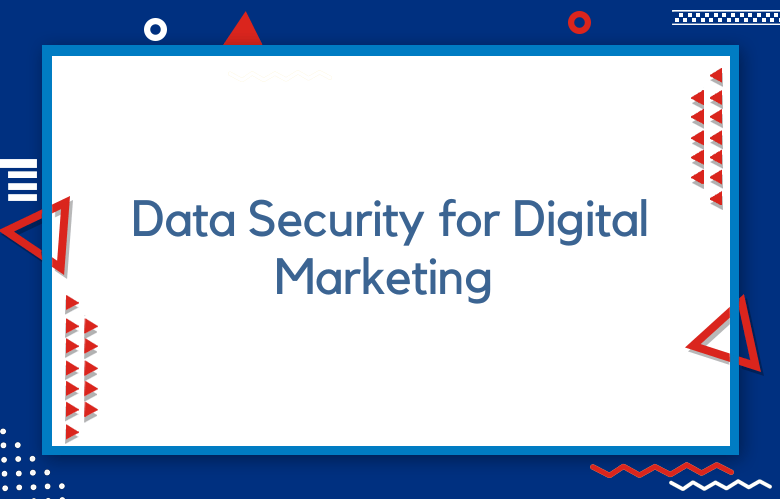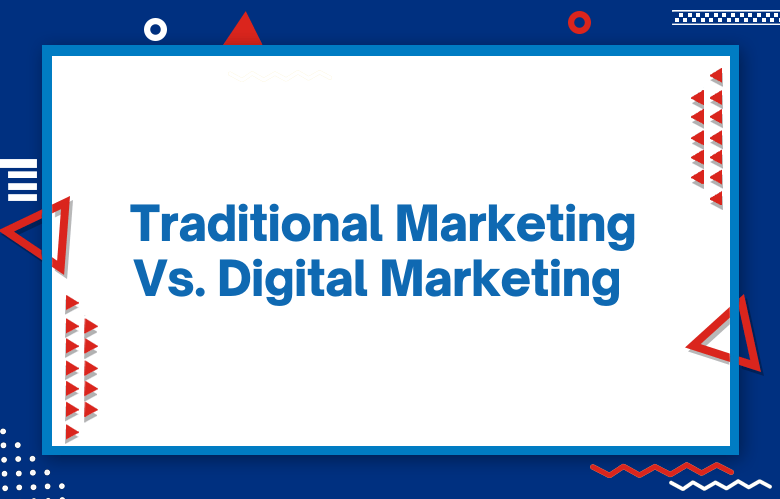Data Security for Digital Marketing Understanding Cybersecurity Risks

In today’s fast-paced digital landscape, the rapid evolution of marketing technologies has brought forth unparalleled opportunities for businesses to connect with their audience and drive growth. However, this rapid digitization has also given rise to new and complex cybersecurity risks that threaten the integrity of digital marketing efforts and the sensitive data they generate.
Data Security for Digital Marketing: Understanding Cybersecurity Risks
This article delves into the critical realm of data security for digital marketing, shedding light on the importance of understanding cybersecurity risks and implementing robust measures to protect valuable information. By recognizing potential vulnerabilities and taking a proactive approach to security, businesses can safeguard their reputation, maintain customer trust, and achieve sustainable success in an ever-evolving market.
As businesses collect, store, and analyze vast amounts of customer data to optimize their marketing strategies, they become prime targets for cybercriminals seeking to exploit vulnerabilities and gain unauthorized access to sensitive information. Data breaches, phishing attacks, and other security incidents can have severe consequences, ranging from financial losses to irreparable damage to brand reputation.
To mitigate these risks and ensure the security of their digital marketing initiatives, businesses must prioritize cybersecurity awareness, invest in advanced security solutions, and cultivate a culture of data protection within their organizations. By staying informed of emerging threats and embracing a proactive approach to security, marketers can navigate digital marketing with confidence and peace of mind.
In the following sections, we will explore essential strategies and best practices for understanding and addressing cybersecurity risks in digital marketing, empowering businesses to safeguard their valuable data, protect their brand, and foster long-term success in an increasingly competitive landscape.
- Key Takeaways
- Understanding Cybersecurity Risks
- Importance of Protecting Customer Data
- Aligning Security with Marketing Strategies
- Importance of Secure Campaign Tools
- Encrypting Sensitive Marketing Data
- Training Employees in Security Awareness
- Developing an Incident Response Plan
- Navigating Privacy Regulations in Marketing
- Strengthening Cyber Resilience in Marketing
- Summary
- Frequently Asked Questions
- What are the critical cybersecurity risks in digital marketing?
- How can businesses effectively align security with their marketing strategies?
- Why is it important to encrypt sensitive marketing data?
- How can employees be trained to enhance security awareness in digital marketing?
- Why is developing an incident response plan crucial for digital marketing?
Did you know that 68% of businesses have experienced data breaches? In the fast-paced world of digital marketing, safeguarding sensitive information is paramount. Ensuring data security not only protects your brand’s reputation but also builds trust with customers. From customer profiles to campaign analytics, every piece of data and website needs robust protection against cyber threats. Implementing encryption, access controls, and regular audits are essential steps in fortifying your digital marketing assets. Stay ahead of potential risks by prioritizing data security in your marketing strategies.
Key Takeaways
- Understanding cybersecurity risks is crucial for digital marketers to protect sensitive data from potential threats.
- Protecting customer data is a legal requirement and essential for maintaining trust and credibility with your audience.
- Aligning security measures with marketing strategies ensures that data protection is integrated into every aspect of your campaigns.
- Secure campaign tools are vital in safeguarding marketing data and preventing unauthorized access or breaches.
- Encrypting sensitive marketing data adds an extra layer of protection, making it harder for cybercriminals to exploit any vulnerabilities.
- Training employees in security awareness is critical to creating a culture of cybersecurity within your marketing team and reducing human errors that could lead to data breaches.
Understanding Cybersecurity Risks
Common Threats
Cyber threats like phishing attacks involve tricking individuals into revealing sensitive information through deceptive emails. Similarly, DDoS attacks overwhelm systems with traffic to disrupt operations.
Phishing attacks often target unsuspecting employees, gaining access to confidential data. On the other hand, DDoS attacks can cripple digital marketing campaigns by rendering websites inaccessible.
Impact on Digital Marketing
When cyberattacks fall into the wrong hands, they can compromise customer data, leading to breaches and loss of trust. Such incidents can tarnish a company’s reputation and result in financial losses.
A breach in data security affects not only the targeted organization but also customers who rely on secure transactions for peace of mind.
Evolving Risks
Staying ahead of evolving cybersecurity risks is crucial in today’s digital landscape. As technology advances, so do the methods used by cybercriminals to breach systems and steal valuable information.
Regularly updating security measures and educating employees about potential threats are essential to mitigating risks associated with unauthorized access and cyber challenges.
Importance of Protecting Customer Data
Safeguarding Customer Data
Businesses must prioritize protecting customer data to maintain trust and loyalty. Unauthorized data access can lead to severe consequences, such as identity theft. Implementing robust security measures is crucial to safeguard customer data.
Consequences of Compromised Customer Data
Data breaches can have detrimental effects on a company’s reputation. When customer data is compromised, it impacts existing and potential customers. The aftermath of a breach can result in a loss of trust and credibility.
Implementing Robust Security Measures
Businesses need to implement comprehensive security protocols to prevent data breaches. Encryption technologies, secure networks, and regular security audits are essential components. Companies can mitigate the risks associated with cyber threats by prioritizing data security.
Aligning Security with Marketing Strategies
Incorporating Cybersecurity into Marketing Campaigns
Marketing efforts can greatly benefit from integrating data security measures early in planning. Companies can mitigate risks and protect valuable customer information by considering cybersecurity implications during campaign development.
Regularly assessing systems for vulnerabilities is essential to ensure a robust defense against potential cyber threats. Conducting cyber risk assessments allows businesses to identify weak points and proactively address them before they are exploited.
Employee Training for Enhanced Cybersecurity
Training employees on security protocols is crucial for strengthening overall cybersecurity defenses. By educating staff on best practices and potential risks, companies can create a cyber awareness culture that permeates the organization.
- Implementing training programs that cover phishing awareness, password hygiene, and data handling procedures can significantly reduce the likelihood of human error leading to security breaches.
- Encouraging employees to report any suspicious activities or potential security incidents promptly can help in the early detection and containment of cyber threats.
Importance of Secure Campaign Tools
Safeguard Customer Data
Utilize secure digital marketing platforms to protect sensitive customer information. These platforms offer advanced encryption protocols and secure data storage to prevent unauthorized access.
By incorporating secure tools, digital marketers can ensure that customer data remains confidential, reducing the risk of data breaches and cyber-attacks. This protects customers and enhances the brand’s reputation for trustworthiness.
Built-in Security Features
Select campaign tools with built-in security features such as two-factor authentication, regular security updates, and compliance with data protection regulations. These features add layers of protection to the data collected during marketing campaigns.
Using tools with robust security measures minimizes vulnerabilities and strengthens the overall data security infrastructure. It is essential to stay updated on the latest security practices and technologies to effectively adapt to evolving cyber threats.
Data Protection Prioritization
Prioritize data protection when choosing campaign tools for digital marketing initiatives. Opt for tools that prioritize privacy by design, ensuring that data protection is a fundamental aspect of their functionality.
Encrypting Sensitive Marketing Data
Implement Encryption
Implement encryption protocols to safeguard sensitive marketing data. Utilize advanced encryption techniques to protect information from unauthorized access.
Secure Data Transmission
Encrypt data transmission channels to ensure the secure transfer of marketing data. This prevents interception by malicious entities during communication.
Robust Encryption Algorithms
Utilize robust encryption algorithms to fortify marketing databases against cyber threats. Implement industry-standard encryption methods for enhanced security.
Training Employees in Security Awareness
Cybersecurity Training
Educating your team on security protocols is crucial for safeguarding sensitive data. Regular training sessions help employees understand the latest threats and best practices.
Identifying Threats
Empower your team to recognize phishing emails, malware, and social engineering tactics. Prompt responses to potential security breaches are vital in mitigating risks effectively.
Cultivating Security Culture
Encouraging a hands-on approach to security within the marketing team fosters a proactive stance against cyber threats. Every member contributes to a robust defense system by emphasizing vigilance and accountability.
Developing an Incident Response Plan
Implement Steps
Developing an incident response plan is crucial for data security in digital marketing. Begin by outlining clear steps to respond to cyber incidents effectively. Identify key team members responsible for incident response and establish communication protocols.
Regularly test the incident response plan to ensure its effectiveness. Conduct simulated exercises to evaluate the team’s readiness to handle data breaches or cyberattacks. Review and update the plan based on lessons learned from each simulation.
Establish Contact Level
Establish clear contact lines with relevant stakeholders, such as IT teams, legal counsel, and senior management. Define roles and responsibilities within the incident response team to facilitate swift communication and decision-making during a cyber incident.
Maintain a detailed list of contact information for all team members involved in the incident response process. Ensure that contact details are regularly updated and easily accessible in an emergency.
Test Effectiveness
Review and update the incident response plan regularly to address gaps or emerging threats. Conduct periodic drills and tabletop exercises to test the plan’s effectiveness in real-world scenarios.
Document all findings from testing exercises and use them to refine the incident response procedures further. Continuous improvement is essential in enhancing the organization’s ability to respond effectively to cyber incidents.
Navigating Privacy Regulations in Marketing
Compliance Strategies
Staying updated on privacy regulations is crucial for the marketing department to protect personal information effectively. Implementing strategies that align with data protection laws ensures explicit consent is obtained before using customer data.
Seeking guidance from legal experts helps navigate the complexities of privacy regulations, especially when utilizing social media platforms for marketing purposes. Ensuring compliance with laws like GDPR and CCPA is essential to avoid hefty fines.
Impact on Marketing Campaigns
Failure to comply with privacy regulations can lead to damaging consequences for marketing efforts. Mishandling customer data or failing to secure it properly can result in a tarnished brand reputation and loss of customer trust.
By prioritizing data security in marketing campaigns, companies are committed to protecting customer privacy. This not only enhances brand credibility but also fosters long-term relationships with customers.
Legal Considerations
Obtaining explicit consent is imperative when collecting personal information through websites or other digital channels. Companies must communicate how customer data will be used and ensure it aligns with relevant privacy regulations.
Implementing robust security measures to safeguard customer data is non-negotiable. Regular audits and assessments help identify vulnerabilities and ensure compliance with evolving privacy laws.
Benefits of Compliance
Complying with privacy regulations mitigates legal risks and enhances customer loyalty. Customers are more likely to engage with brands prioritizing their privacy and security, leading to increased trust and brand advocacy.
Maintaining transparency in data collection practices builds a positive brand image and sets companies apart from competitors who overlook privacy considerations.
Strengthening Cyber Resilience in Marketing
Enhancing Resilience
Enhance cyber resilience by implementing robust security measures to safeguard digital marketing operations. Regularly update security protocols and conduct thorough risk assessments to identify vulnerabilities.
By prioritizing resilience, businesses can protect sensitive data and maintain the trust of their customers. Implementing multi-factor authentication and encryption techniques can enhance the overall cybersecurity posture.
Mitigating Disruption
To mitigate business disruption, establish a comprehensive cybersecurity framework that includes incident response plans and regular security audits. Train employees on cyber hygiene practices to prevent potential threats.
Businesses should invest in secure network infrastructure to safeguard against cyber attacks and ensure the continuous operation of digital marketing activities. They should also regularly back up critical data to minimize the impact of potential breaches.
Leveraging Strategic Advantage
Leverage cyber resilience as a strategic advantage in digital marketing efforts by demonstrating a commitment to data security. Communicate your strong cybersecurity measures to customers to build trust and credibility.
Summary
Protecting customer data and ensuring data security in digital marketing are crucial in today’s landscape. You strengthen cyber resilience by aligning security measures with your marketing strategies, using secure campaign tools, encrypting sensitive data, training employees in security awareness, developing an incident response plan, and navigating privacy regulations. Embracing these practices safeguards your brand’s reputation and fosters trust with your customers. Stay proactive in enhancing your data security to avoid potential cyber threats and regulatory challenges.
Incorporate these security measures into your digital marketing processes to fortify your defenses against evolving cybersecurity risks. Your commitment to data security protects your business and builds credibility and trust with your audience. Take charge of your data security today to safeguard your brand’s integrity and maintain customer loyalty.
Frequently Asked Questions
What are the critical cybersecurity risks in digital marketing?
Cybersecurity risks in digital marketing include data breaches, phishing attacks, malware infections, and unauthorized access to customer information. It’s crucial to implement robust security measures to safeguard sensitive data.
How can businesses effectively align security with their marketing strategies to reach potential customers through online presence and social media platforms?
Businesses can align security with marketing strategies by integrating security protocols into every aspect of their campaigns. This includes secure data collection tools, sensitive information encryption, and training employees on security best practices.
Why is it important to encrypt sensitive marketing data?
Encrypting sensitive marketing data ensures that even if unauthorized individuals gain access to the information, they cannot decipher it. This protects customer privacy, maintains trust, and helps businesses comply with data protection regulations.
How can employees be trained to enhance security awareness in digital marketing?
Employees can be trained in security awareness through regular workshops, simulated phishing exercises, and clear guidelines on handling sensitive data. Building a culture of vigilance and accountability is essential for mitigating cybersecurity risks.
Why is developing an incident response plan crucial for digital marketing?
An incident response plan allows businesses to respond swiftly and effectively to cybersecurity incidents. This minimizes potential damage, ensures a coordinated approach during crises, and demonstrates a commitment to protecting customer data.



